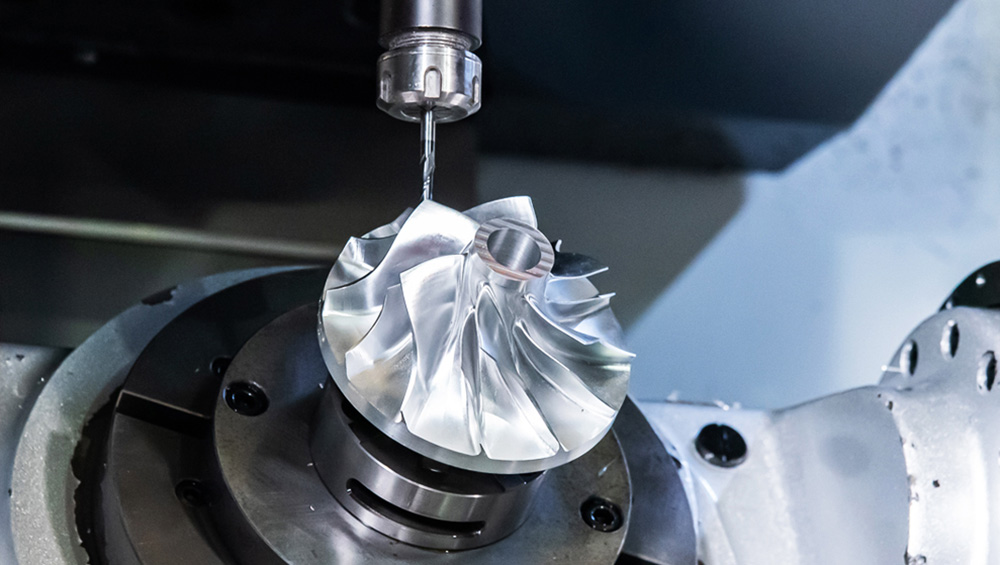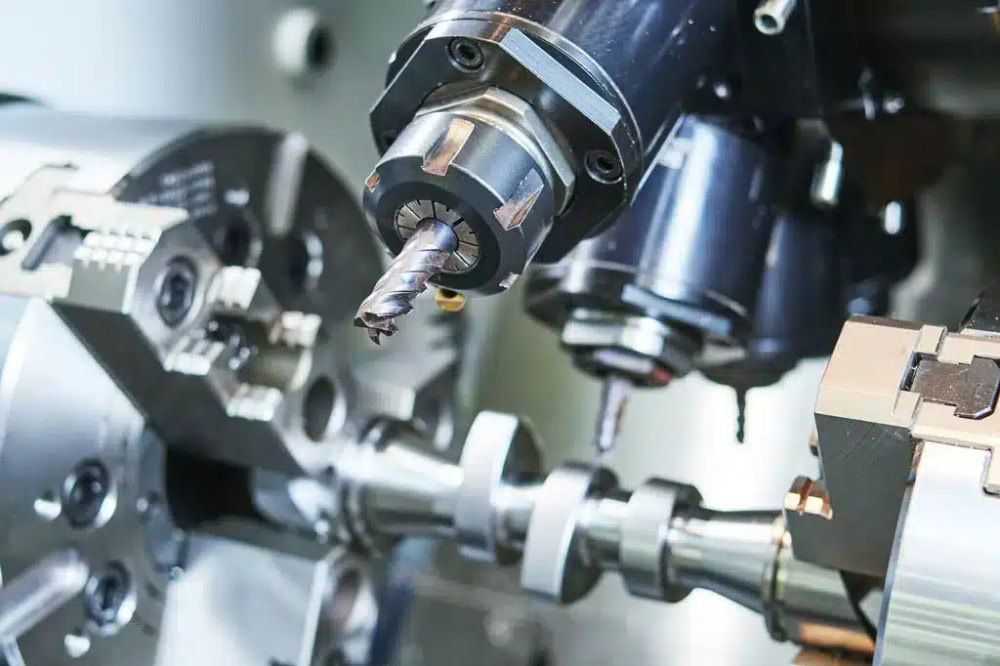Precision Hardware Customized Solutions Manufacturer
Author | Shengwo Industry Insights Team
Updated | October 2025
Contents
In recent years, the field of Advanced CNC Technologies has undergone revolutionary transformation, redefining how precision parts and components are produced. These innovations not only boost efficiency but also significantly improve accuracy, consistency, and scalability in industrial manufacturing. From aerospace and automotive to electronics and energy sectors, advanced CNC systems have become the backbone of modern engineering. With the integration of artificial intelligence, cloud computing, and IoT monitoring, CNC machining has entered a new era where machines communicate, learn, and optimize themselves in real time. As global demand for high-precision, custom-engineered components continues to rise, understanding the evolution and benefits of Advanced CNC Technologies becomes essential for any manufacturer or industrial buyer in 2025 and beyond.

At its foundation, Advanced CNC Technologies refer to the latest generation of computer-controlled machining systems that combine automation, smart sensors, and data analytics to achieve exceptional precision and productivity. Unlike traditional machining processes, these systems utilize multi-axis control, high-speed spindles, and adaptive algorithms to ensure every cut and contour meets micrometer-level tolerances. The integration of CAD/CAM software allows seamless transition from design to production, reducing human error and saving valuable time. Furthermore, these technologies support a wide range of materials—including stainless steel, titanium, copper, and advanced polymers—making them ideal for industries demanding both durability and flexibility. By leveraging digital simulation and predictive maintenance, manufacturers can minimize downtime and achieve lean, efficient operations that meet global quality standards.
The year 2025 marks an acceleration in Advanced CNC Technologies, with breakthroughs such as AI-driven machining, hybrid additive-subtractive systems, and real-time digital twins. Artificial intelligence enables machines to self-adjust cutting parameters based on tool wear and material behavior, drastically improving tool life and surface finish. Meanwhile, hybrid CNC machines combine traditional milling or turning with additive manufacturing, offering unprecedented flexibility for complex geometries. The concept of the “digital twin”—a virtual replica of a CNC system—allows engineers to simulate operations, detect anomalies, and fine-tune performance remotely. These advancements make production smarter, safer, and more sustainable, aligning with global manufacturing standards like ISO/ASTM 52900 Additive Manufacturing Framework.
Adopting Advanced CNC Technologies brings measurable benefits across all stages of production.
Precision and Repeatability: Machines achieve tolerances as tight as ±0.002 mm, ensuring perfect consistency.
Reduced Lead Time: Automation accelerates workflows, cutting production cycles by up to 40%.
Material Efficiency: Smart algorithms optimize cutting paths, minimizing waste.
Cost Reduction: Predictive maintenance and process optimization lower energy and tool costs.
Moreover, data-driven monitoring enables manufacturers to maintain transparency and traceability throughout the production chain—key factors for industries such as aerospace, where quality assurance is critical. When combined with advanced surface finishing and robotic automation, CNC technology provides a foundation for future-ready, sustainable manufacturing ecosystems.
In precision sheet metal fabrication, Advanced CNC Technologies have become indispensable. CNC bending, laser cutting, and multi-axis forming machines enable complex geometries that were previously impossible with manual operations. High-speed fiber lasers ensure ultra-clean edges, while automated bending systems guarantee consistency across large batches. Furthermore, digital control ensures that every process—whether punching, cutting, or welding—aligns precisely with 3D CAD models. For applications such as stainless-steel enclosures, electronic housings, and industrial equipment frames, CNC technology ensures both structural strength and aesthetic appeal. As industries pursue higher customization, these systems allow rapid prototyping and batch production without compromising quality or efficiency.
Automation lies at the heart of Advanced CNC Technologies. Modern production lines now integrate robotic arms for tool changing, part loading, and quality inspection. Through IoT connectivity, machines transmit operational data in real time to cloud-based dashboards, enabling predictive maintenance and remote diagnostics. Smart manufacturing ecosystems—often described as Industry 4.0 environments—allow manufacturers to track performance metrics, reduce downtime, and optimize resource allocation automatically. According to Siemens Digital Industries Report, the adoption of intelligent automation increases plant productivity by up to 25%. This combination of robotics, data analytics, and machine learning ensures that CNC machining remains a key driver of next-generation industrial competitiveness.
As global industries focus on sustainability, Advanced CNC Technologies play a vital role in achieving green manufacturing goals. Energy-efficient spindles, recyclable cutting fluids, and optimized production layouts reduce waste and environmental impact. Manufacturers can now monitor power consumption per cycle and adjust machining parameters to minimize carbon footprint. With precision machining, materials like aluminum, brass, and stainless steel are used more efficiently, significantly lowering scrap rates. Furthermore, digital tracking ensures full compliance with international environmental standards such as ISO 14001. For forward-thinking companies like Shengwo Machinery, sustainability is not just a responsibility—it’s a strategic advantage that aligns innovation with eco-efficiency.
By 2025, Advanced CNC Technologies are expected to fully integrate artificial intelligence, cloud-based production management, and augmented-reality assistance. Smart vision systems will monitor surface finish quality automatically, while machine-learning algorithms will forecast maintenance schedules before failures occur. Global manufacturing leaders are already investing heavily in digital transformation and workforce upskilling to maximize CNC potential. According to McKinsey’s Industry 4.0 Report, the global CNC machining market will surpass USD 120 billion by 2026, driven by demand for customized, high-precision components across sectors like medical devices, aerospace, and renewable energy. This digital evolution marks the beginning of a smarter, cleaner, and more connected era in industrial production.

Shengwo Machinery stands out as one of China’s most reliable suppliers of Advanced CNC Technologies, offering a full range of precision sheet metal fabrication, Precision CNC machining, and custom-engineered racks or displays.
Our competitive advantages include:
A 2,500 m² upgraded facility—a 100% capacity increase—to meet global demand.
Recognition as a green supplier certified by Schneider Electric (Fortune 500).
Dual international certifications: ISO9001 and ISO14001, accredited by the UK certification authority.
National honors as a High-Tech Enterprise and Technology-Driven SME.
Implementation of advanced ERP management systems to ensure accuracy in order tracking and cost control.
A commitment to Safety, Quality, Delivery, Cost, and Innovation as key performance pillars.
A business model focused primarily on foreign-invested enterprises and export projects.
By choosing Shengwo, you partner with a manufacturer who not only delivers precision but also integrates sustainability, digital innovation, and global-grade quality assurance into every project.
Q1: What makes Advanced CNC Technologies different from traditional machining?
A1: Advanced CNC Technologies combine automation, AI algorithms, and digital analytics, enabling higher precision, faster cycle times, and lower costs. These systems learn from real-time data to continuously optimize performance—something manual machining cannot achieve.
Q2: How does Shengwo ensure quality in CNC machining projects?
A2: Shengwo follows ISO9001 standards and employs multi-stage inspection, including CMM measurement and 3D CAD validation. Our ERP system provides full traceability from material sourcing to delivery.
Q3: What industries benefit most from Advanced CNC Technologies?
A3: Aerospace, automotive, energy, medical equipment, and consumer electronics industries all benefit due to their demand for complex, tight-tolerance components with zero defects.
Q4: Can Shengwo handle custom designs or prototypes?
A4: Absolutely. We specialize in turning client drawings or 3D models into fully functional prototypes and production-ready parts, using advanced software and precision-grade materials.
Q5: How can I start a project with Shengwo Machinery?
A5: Simply contact us via our website or email, share your technical drawings or requirements, and our engineering team will provide a detailed quotation and DFM suggestions within 24 hours.
In conclusion, Advanced CNC Technologies are redefining global manufacturing through digitalization, automation, and sustainable innovation. As industries evolve toward smart and eco-efficient production, choosing a reliable, certified, and technologically advanced supplier becomes more critical than ever. Shengwo Machinery provides the perfect balance of quality, innovation, and cost-effectiveness—making us your trusted partner for all CNC machining and precision fabrication needs.
Contact Shengwo today to discuss your next project and experience how cutting-edge CNC technologies can transform your manufacturing efficiency.